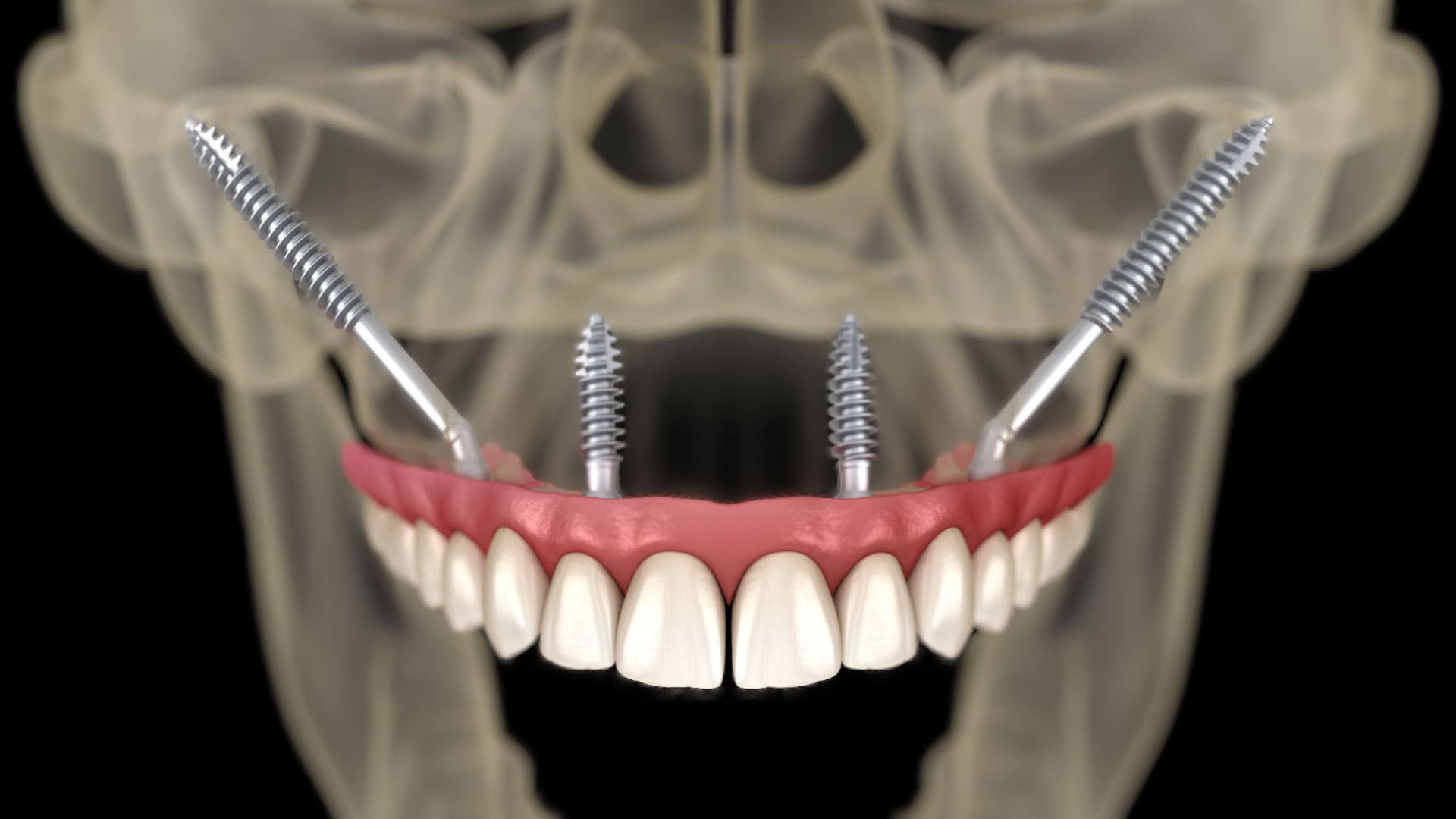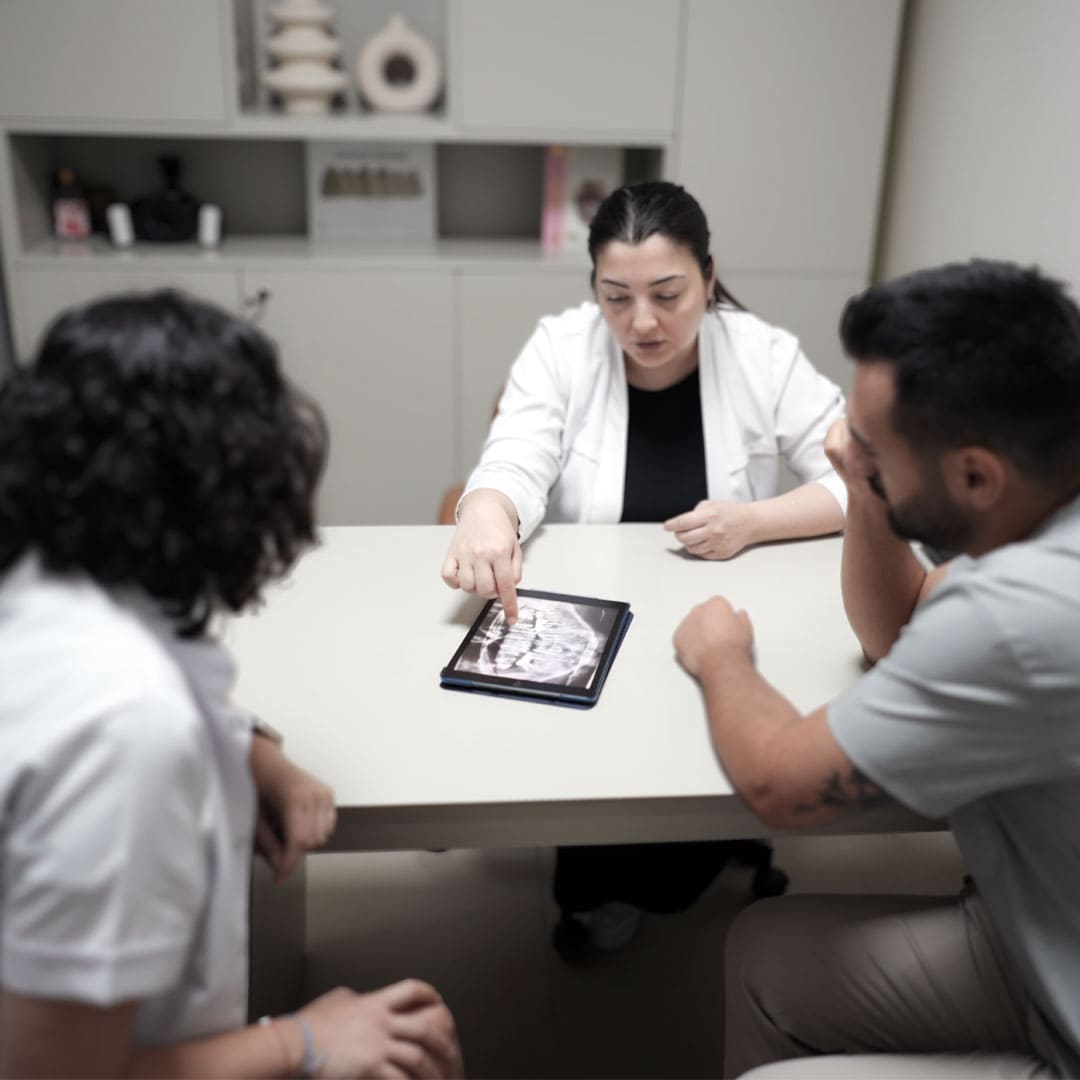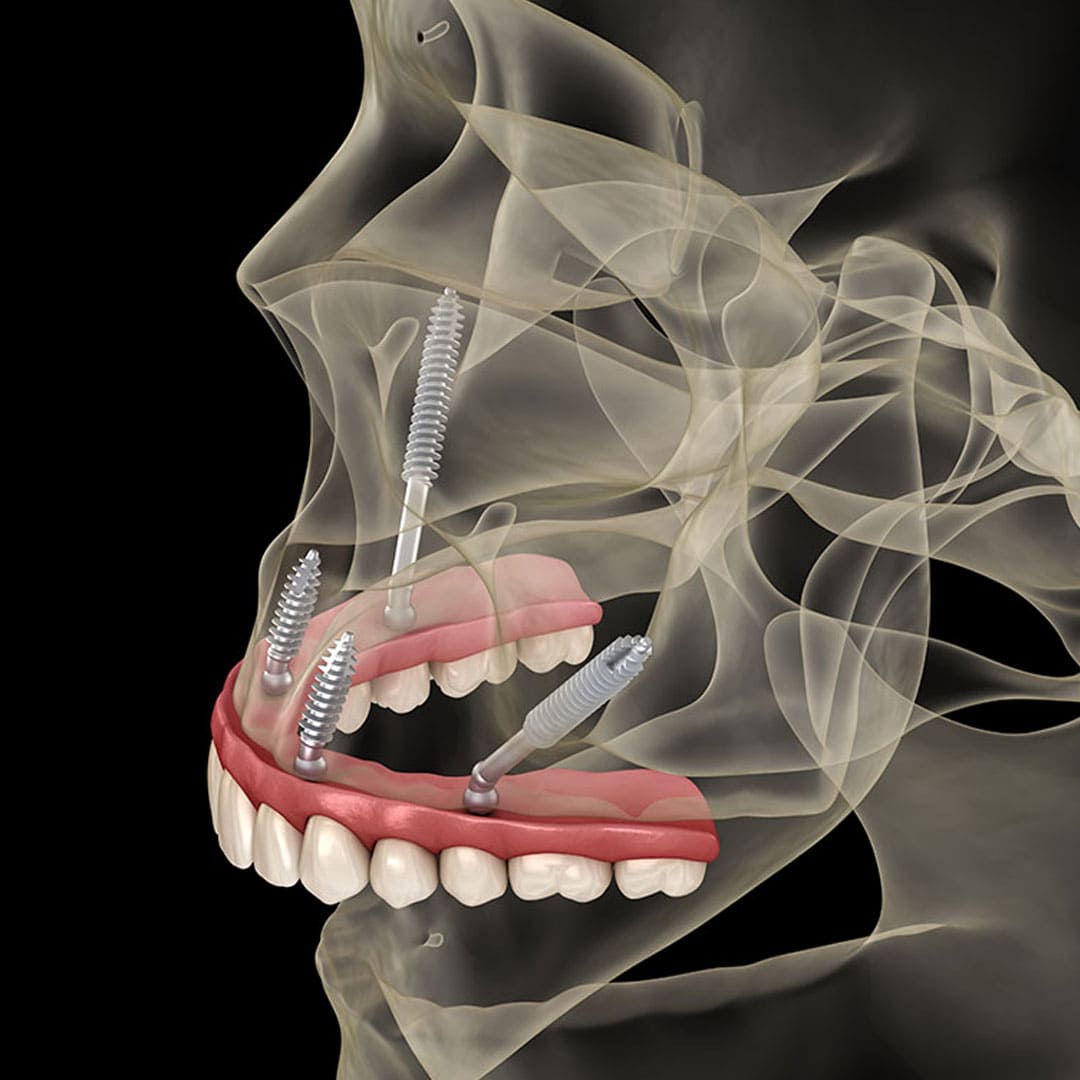
Zygoma Implants
Zygoma Implants
What is a Zygoma Implant?
Zygomatic implants are long implants developed for patients with severe bone loss in the upper jaw. These implants are placed in the zygomatic (cheekbone) and are used when traditional implants cannot be used. Zygoma implants are an ideal solution, especially for patients who need additional surgical procedures such as bone grafting.
Advantages of the Zygoma Implant
Solution for Serious Bone Loss:
Suitable for patients with severe bone loss in the upper jaw.
No Need for Additional Bone Surgery:
It can be applied without the need for additional surgical procedures such as bone grafting.
Stability and Safety:
It provides high stability as it is placed in the zygomatic bone.
Fast Recovery:
It offers a shorter recovery time compared to other complex surgical procedures.
Treatment Process
Examination and Planning:
Your dentist will evaluate your jaw structure and bone density. Digital scans are taken and x-rays are taken to determine if you are suitable for zygoma implants.
Surgical Procedure:
The zygomatic implants are placed into the zygomatic bone under general anesthesia or sedation.
Temporary Teeth:
After the implant is placed, temporary teeth are inserted so that the patient can return to normal life immediately.
Healing Process:
It may take several months for the implants to fuse with the bone (osseointegration). Temporary teeth are used during this process.
Permanent Prosthesis:
After the implants are completely fused, permanent and fixed prostheses are placed.

Frequently Asked Questions
How are zygoma implants done?
Zygomatic implants are placed in the zygomatic bone under general anesthesia or sedation.
Is the implant procedure painful?
Anesthesia is used during the procedure, so no pain is felt. There may be slight discomfort during the healing process.
How to care for zygoma implants?
Caring for zygoma implants is like caring for natural teeth. Regular brushing, flossing and dental check-ups are necessary.
Can zygoma implants be applied at any age?
Yes, patients of all age groups in good general health can receive this treatment.
